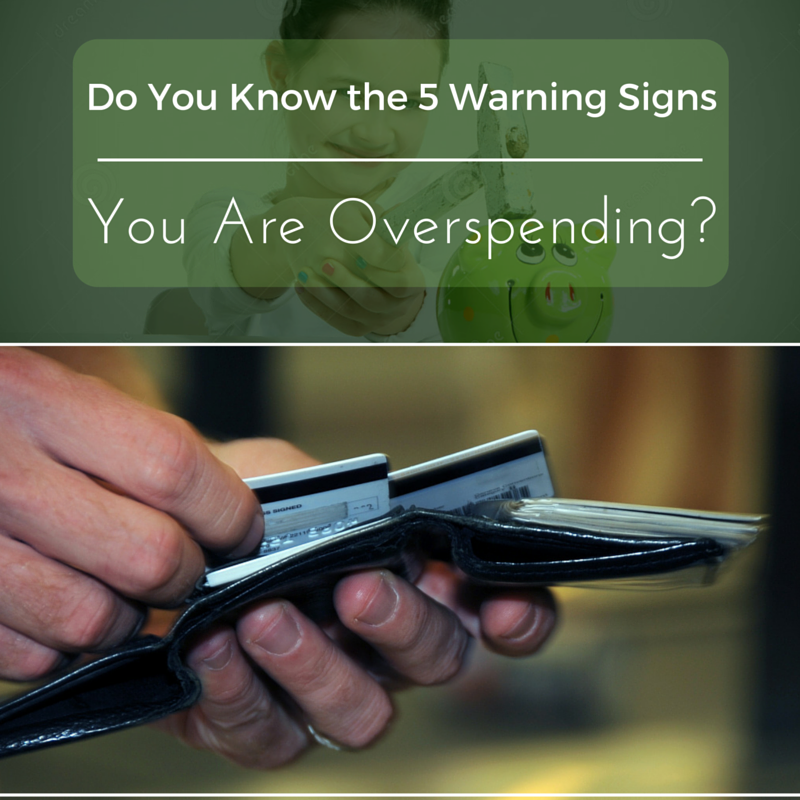Do You Know the 5 Warning Signs You Are Overspending?

If you are pulling money from savings to meet your regular monthly expenses or finding yourself pulling out your credit card because you have no cash in your bank account, you may be overspending.
One in five Americans spends more than what they earn each year.
Unfortunately, overspending can lead to significant financial difficulties as you may be unable to put money aside for emergencies or save for the future. Here are five warning signs that you may be overspending.
Paying Minimum on Maxed Out Credit Cards
If your credit cards are at or near their limit and you are unable to pay more than the minimum payment, you may be relying on credit to heavily. Not only can this make it difficult to pay your bills, it can cost you a significant amount of interest and be detrimental to your credit score.
Credit reporting agencies lower your score when a high percentage of your available credit is used as it is a sign that you are struggling financially. If you are only able to pay the minimum payment, it will also take you longer to pay the debt.
For example, a credit card with a balance of $1,000 and an interest rate of 16 percent would take five years to pay off, cost you over $400 in interest and that is only if you never charged anything else on it before it was paid in full.
Late Bill Payments
Paying bills late because you don’t have the money to pay them is a sign you are overspending. You are not alone as one in 20 people are at least 30 days late on non-secured loans including credit cards.
Late payments can also result in late fees and creditors may penalize you for the late payments with higher interest rates or lower credit limits. Allowing an account to go more than 180 days late can result in collection activity, significant damage to your credit report and possible legal action from the creditor.
Withdrawing from Retirement Accounts
Many times, borrowing from a retirement account seems like a good financial decision because you are basically repaying yourself. If you are overspending, you may find yourself borrowing often from your 401(k).
Although the interest rate on a retirement fund loan is often lower than you would get at a bank or other financial institution, it is often much lower than the rate of return. Therefore, you are not replacing what you lost while the loan was outstanding.
You Use High-Interest, Short-Term Loans
Title and payday loans seem like an attractive way to get money fast, especially if you are facing an emergency like a car or home repair. The loans are meant to be short-term, often with terms between 14 and 30 days. However, if you are relying on title or payday loans to cover everyday expenses, you are more than likely overspending and may even be close to financial crisis.
These types of loans have extraordinarily high interest, ranging from 300 to 600 percent. Lenders often entice you to “rollover” the loan rather than pay it in full when it comes due. Rolling over a $300 payday loan just a few times can result in more than $400 in interest with a repayment of more than $800.
Borrowing from Friends and Family
If you are reaching out to friends and family on a regular basis to cover routine expenses, you may be overspending. Although these types of loans may be interest-free, they can lead to tension when you are unable to repay the loan. In addition, you may be putting your friend or family member in a financial bind should you be unable to repay the loan as promised.
There are ways to stop overspending. Creating a budget, relying on cash to make purchases or seeking assistance from a reputable credit counseling agency are all tips for breaking the overspending habit and getting back on your financial feet.



